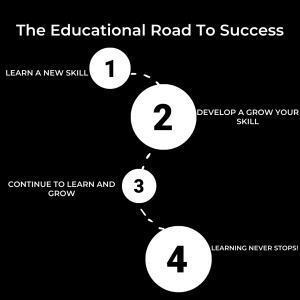Why Early Learning Matters: The Foundation for Lifelong Success
Early learning plays a pivotal role in a child’s development, establishing a foundation that can influence their future educational journey. Investing in early childhood education is critical because it promotes essential skills, emotional growth, and cognitive development during the formative years. Research consistently shows that children who participate in quality early learning programs are better prepared for school and tend to perform better academically.
The importance of early childhood education cannot be overstated. It fosters key skills such as language development, problem-solving, and social interaction, which are vital for success in later life. As children engage in structured play and guided learning experiences, they build confidence and a love for learning that can last a lifetime.
The benefits of early learning extend beyond academics. They encompass emotional and social growth, allowing children to navigate relationships and understand their feelings. By prioritizing early education, families and communities lay the groundwork for a brighter, more capable generation.
Fundamentals of Early Learning
Early learning is a crucial phase that significantly influences a child’s cognitive and emotional development. Understanding the elements that contribute to effective early education can enhance the learning experience while laying a solid foundation for future growth.
Cognitive and Emotional Development
Cognitive development refers to how children think, explore, and figure things out. This process includes acquiring skills like memory, attention, and problem-solving. During early education, activities that promote cognitive skills include storytelling, puzzles, and interactive lessons.
Emotional development is equally important. Children learn to manage their feelings and build behavioral skills that promote healthy relationships. For instance, recognizing emotions helps them develop empathy and social awareness. Programs that incorporate both areas support comprehensive development, preparing children for social situations and future academic challenges.
Role of Play in Learning
Play is a fundamental aspect of early learning, offering opportunities for exploration and creativity. Through play, children engage in hands-on activities that foster cognitive skills. Activities like building blocks and role-playing enhance problem-solving abilities and imagination.
Play-based learning encourages emotional growth as well. Children navigate social interactions, learning important skills like sharing and cooperation. This form of learning is not just enjoyable; it stimulates curiosity and motivation, creating a dynamic environment conducive to education.
The Impact of Environment on Early Education
The environment plays a critical role in shaping a child’s learning experience. A rich, supportive setting provides diverse opportunities for exploration and discovery. Factors like safety, accessibility, and stimulating materials affect children’s willingness to engage and learn.
In addition, the presence of supportive adults, including teachers and caregivers, enhances the educational experience. Supportive interactions encourage emotional development and help cultivate resilience. A well-designed learning environment that incorporates both cognitive and emotional elements can lead to significant developmental advantages.
Benefits of Early Childhood Education
Early childhood education plays a crucial role in fostering essential skills and knowledge that contribute to a child’s success in various aspects of life. Key benefits include enhanced academic readiness, development of social and emotional skills, and a foundation for lifelong learning.
Academic Achievement and School Readiness
Children who engage in early childhood education programs often demonstrate higher academic performance. They are better prepared for school, showing improved literacy and numeracy skills.
Research indicates that exposure to structured learning environments cultivates critical thinking and problem-solving abilities. These skills are vital for navigating formal education effectively.
Additionally, early learners typically exhibit better attendance and lower dropout rates. This early foundation significantly contributes to sustained academic achievement throughout their schooling.
Social and Emotional Skills Development
Early childhood education helps children develop key social and emotional skills. Interacting with peers and educators fosters cooperation, sharing, and effective communication.
Children learn to express their feelings appropriately, manage conflicts, and build relationships. These skills form a robust social foundation that will benefit them throughout their lives.
Moreover, the emotional support provided in these programs enhances self-esteem and resilience. Children develop a growth mindset, which is essential for tackling challenges in various settings.
Lifelong Learning and Career Success
Investing in early childhood education lays the groundwork for lifelong learning. Children exposed to diverse learning experiences cultivate a curiosity that drives them to seek knowledge later in life.
This early engagement fosters adaptability, critical for future employment opportunities. As the job market evolves, individuals with a solid foundation in learning tend to be more resilient and successful in their careers.
Furthermore, early educational experiences contribute to skill sets that employers value. These include teamwork, communication, and problem-solving abilities, which are crucial for achieving long-term career success.
Creating an Effective Early Learning Environment
An effective early learning environment focuses on fostering inclusive practices and engaging activities. Prioritizing holistic development enables children to thrive creatively while ensuring that their unique needs are met.
Inclusive and Holistic Education Approaches
Inclusive education in early childhood education (ECE) ensures that all children, regardless of their backgrounds or abilities, are valued participants. It promotes an environment where diversity is celebrated, helping children develop social skills and emotional intelligence.
Holistic development covers multiple areas: cognitive, social, emotional, and physical growth. Educators should integrate activities that address these aspects, such as tailored learning experiences that accommodate varied learning styles. Incorporating assistive technologies and differentiation strategies can further support diverse learners, helping every child reach their potential.
Incorporating Creativity and Innovation
Creativity is vital for young learners. Implementing art, music, and storytelling activities encourages self-expression and innovative thinking. These activities provide avenues for children to explore their imaginations while developing fine motor skills and cognitive abilities.
Innovation in early learning can also come from integrating technology. For example, interactive storytelling or educational apps can engage children and enhance learning experiences. Encouraging children to experiment with different materials fosters problem-solving skills and nurtures a creative mindset.
Education through Engagement and Activities
Hands-on learning activities significantly enhance engagement in early childhood settings. Through play-based learning, children build essential skills while enjoying the process. Activities like role-playing, outdoor exploration, and group projects foster collaboration and social interaction.
Incorporating movement, music, and sensory experiences keeps young learners interested and motivated. For example, incorporating rhythm into counting or using art to explore emotions creates a dynamic atmosphere. These interactive experiences not only facilitate learning but also build a sense of community within the classroom.
Investment and Societal Impact of Early Education
Investing in early education has significant economic implications and contributes to building a strong societal foundation. Research shows that sound investments in early childhood programs yield substantial returns, benefiting both individuals and society at large.
The Economic Perspective
Early childhood education fosters economic growth by enhancing the skills of future workforce participants. Studies indicate that investments in quality education yield a return of up to $7 to $10 for every dollar spent when considering long-term benefits like higher earnings and reduced crime rates.
Furthermore, these programs contribute to increased productivity as children develop critical thinking and social skills. They create a more qualified workforce, reducing reliance on social services. Business leaders recognize that investing in early education supports a healthier economy through improved workforce readiness.
Building Society through Early Education
Quality early education plays a crucial role in shaping community values and social cohesion. It cultivates collaboration, empathy, and communication skills among young learners.
Communities with strong early education programs often experience lower dropout rates and improved public health outcomes. Additionally, exposure to diverse environments fosters inclusion and understanding. These factors contribute to a more equitable society, ultimately enhancing the overall quality of life for all citizens.
In summary, early education is not only an investment in individual futures but also a cornerstone for societal progress.


